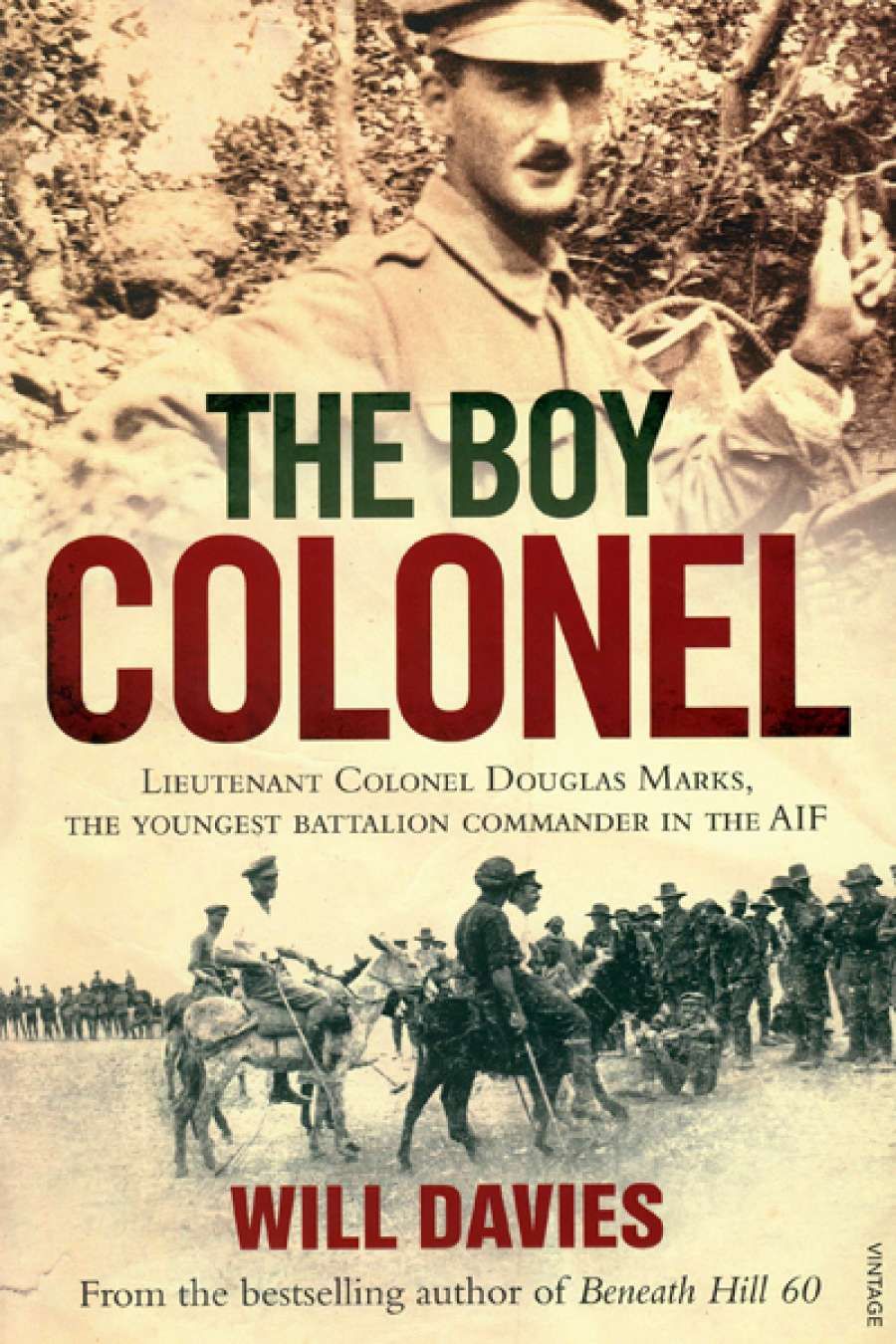
- Free Article: No
- Contents Category: Military History
- Custom Article Title: Jo Scanlan reviews 'The Boy Colonel' by Will Davies
- Custom Highlight Text:
So many Australian scholars and writers stand tall alongside C.E.W. Bean that you have to wonder: is there much more that can be said about World War I? Well, no. And yes. Almost one hundred years on, writers such as battlefield historian Will Davies continue to seek illumination through unfamiliar characters and fresh angles. Such is his intention in his latest book, The Boy Colonel ...
- Book 1 Title: The Boy Colonel
- Book 1 Subtitle: Lieutenant Colonel Douglas Marks, the Youngest Battalion Commander in the AIF
- Book 1 Biblio: Vintage, $34.95 pb, 428 pp, 9781742755984
Douglas Marks was with the 13th Battalion AIF from its formation in 1914 and was promoted to its command in December 1917 when he was just twenty-two years old. We are led by the book’s title to expect a biography, and we meet a fine young man who is a talented, diligent soldier and a natural leader. But as a driver of this narrative he is elusive, and often inconsequential. Marks might be the hook that opens (and closes) the tale, but he by no means sustains it. We don’t find out enough about his background or his personality. Extracts from his letters are scant and his diary is matter-of-fact. Davies compensates for this by relating a bigger story, despite the risk that we might have heard it before.
The Boy Colonel is best read as an updated history of the 13th Battalion at Gallipoli and on the Western Front. In this sense, Davies has done a fine job of melding a range of primary sources into a densely detailed but coherent account of a proud band of men fighting a tough, long and dirty war. Davies portrays Marks’s predecessors in command as equally inspirational and respected men, and skilfully brings to life the battalion’s cast of courageous, tenacious fighters, including the highly decorated Harry Murray. This seems fitting: one thing we do learn about Marks is that he always supported the recognition of his comrades.


Comments powered by CComment